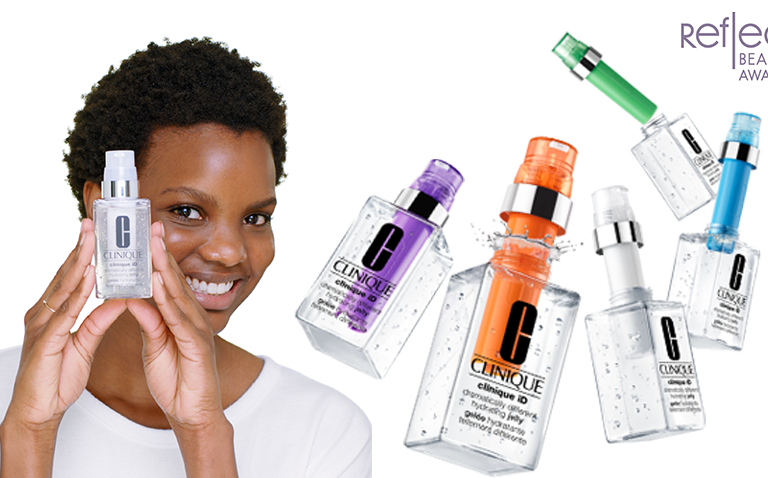“The Ultimate Guide to Finding Your Holy Grail Moisturizer: A Deep Dive into Hydration
Related Articles The Ultimate Guide to Finding Your Holy Grail Moisturizer: A Deep Dive into Hydration
- The Ultimate Guide To The Best Highlighters: Achieve Your Radiant Glow
- Basic Beauty Trends: Mastering The Essentials For A Timeless Glow
- Affordable Daily Glam: Elevate Your Everyday Look Without Breaking The Bank
- The Basic Glam Look: A Step-by-Step Guide To Effortless Elegance
- The Best Makeup Artists In The World
Introduction
With great enthusiasm, we’re diving into an engaging topic related to The Ultimate Guide to Finding Your Holy Grail Moisturizer: A Deep Dive into Hydration. Let’s weave together valuable insights and fresh perspectives to bring a new dimension to your understanding.
Table of Content
The Ultimate Guide to Finding Your Holy Grail Moisturizer: A Deep Dive into Hydration

In the vast and often overwhelming world of skincare, one product reigns supreme as the cornerstone of a healthy, radiant complexion: the moisturizer. More than just a cosmetic add-on, a good moisturizer is a vital component of skin health, providing essential hydration, protection, and support for the skin’s natural barrier.
But with countless options lining the shelves, how do you navigate the sea of creams, lotions, gels, and serums to find the perfect moisturizer for your unique skin needs? This comprehensive guide will break down everything you need to know, from understanding your skin type to decoding ingredient lists and exploring some of the best moisturizers on the market.
Why Moisturizing Matters: The Science Behind Hydration
Before diving into product recommendations, let’s understand why moisturizing is so crucial for healthy skin:
- Hydration is Key: Skin cells, like all cells in the body, need water to function optimally. Dehydrated skin can become dry, flaky, itchy, and more prone to irritation.
- Barrier Function: The skin’s outermost layer, the stratum corneum, acts as a protective barrier against environmental aggressors like pollution, UV rays, and bacteria. A well-hydrated stratum corneum is stronger and more effective at this role.
- Anti-Aging Benefits: Hydrated skin appears plumper, smoother, and more youthful. Moisturizers can help minimize the appearance of fine lines and wrinkles.
- Oil Control: Counterintuitively, moisturizing can help regulate oil production. When skin is dehydrated, it may overcompensate by producing excess sebum, leading to breakouts.
- Soothing Irritation: Moisturizers can soothe and calm irritated or sensitive skin, providing relief from dryness, redness, and inflammation.

Understanding Your Skin Type: The Foundation of Moisturizer Selection
The most important step in finding the right moisturizer is identifying your skin type. Here’s a quick guide:
- Normal Skin: Balanced, with minimal dryness or oiliness.
- Dry Skin: Feels tight, may be flaky or itchy, and lacks natural oils.
- Oily Skin: Prone to shine, enlarged pores, and breakouts.
- Combination Skin: A mix of oily (usually the T-zone) and dry areas.
- Sensitive Skin: Easily irritated, prone to redness, itching, or burning.


Decoding the Ingredient List: What to Look For (and Avoid)
Once you know your skin type, you can start deciphering ingredient lists. Here are some key ingredients to look for in a moisturizer:
- Humectants: These draw moisture from the air into the skin. Common humectants include:
- Hyaluronic Acid: A powerful humectant that can hold up to 1000 times its weight in water.
- Glycerin: A classic humectant that’s gentle and effective.
- Honey: A natural humectant with antibacterial and antioxidant properties.
- Aloe Vera: A soothing humectant with anti-inflammatory benefits.
- Emollients: These soften and smooth the skin by filling in gaps between skin cells. Common emollients include:
- Ceramides: Lipids that are naturally found in the skin and help maintain the barrier function.
- Shea Butter: A rich emollient that’s deeply moisturizing and soothing.
- Squalane: A lightweight emollient derived from olives or sugarcane that mimics the skin’s natural oils.
- Fatty Acids: Like linoleic acid and oleic acid, these nourish and protect the skin.
- Occlusives: These form a protective barrier on the skin’s surface to prevent moisture loss. Common occlusives include:
- Petroleum Jelly (Vaseline): A highly effective occlusive that’s often recommended for very dry skin.
- Mineral Oil: Another effective occlusive that’s generally well-tolerated.
- Beeswax: A natural occlusive that also has anti-inflammatory properties.
- Silicones: Like dimethicone, these create a smooth, silky feel on the skin.
- Other Beneficial Ingredients:
- Antioxidants: Like vitamin C, vitamin E, and green tea extract, these protect the skin from free radical damage.
- Peptides: These can help stimulate collagen production and improve skin elasticity.
- Niacinamide: A form of vitamin B3 that can help reduce inflammation, minimize pores, and improve skin tone.
- Sunscreen: A broad-spectrum SPF is essential for protecting the skin from sun damage.
Ingredients to Avoid (Especially if You Have Sensitive Skin):
- Fragrance: A common irritant that can cause allergic reactions.
- Alcohol: Can be drying and irritating, especially for dry or sensitive skin.
- Essential Oils: While some essential oils can be beneficial, others can be irritating or sensitizing.
- Parabens: Although controversial, some people prefer to avoid parabens as preservatives.
- Sulfates: Harsh cleansers that can strip the skin of its natural oils.
The Best Moisturizers for Every Skin Type: Our Top Picks
Now that you have a solid understanding of skin types and ingredients, let’s explore some of the best moisturizers on the market, categorized by skin type:
For Dry Skin:
- CeraVe Moisturizing Cream: A cult-favorite that’s packed with ceramides and hyaluronic acid. It’s fragrance-free, non-comedogenic, and incredibly effective at hydrating dry, irritated skin.
- La Roche-Posay Toleriane Double Repair Face Moisturizer UV SPF 30: A rich, creamy moisturizer that provides intense hydration and broad-spectrum sun protection. It’s also fragrance-free and non-comedogenic.
- Weleda Skin Food: An ultra-rich cream that’s perfect for very dry or rough skin. It contains a blend of plant extracts and oils that nourish and protect the skin.
For Oily Skin:
- Neutrogena Hydro Boost Water Gel: A lightweight, oil-free gel that provides intense hydration without clogging pores. It contains hyaluronic acid and is perfect for oily or combination skin.
- Paula’s Choice RESIST Anti-Aging Clear Skin Hydrator: A gel-cream moisturizer that contains antioxidants and niacinamide to help control oil production and improve skin tone.
- The Ordinary Natural Moisturizing Factors + HA: A simple, affordable moisturizer that contains a blend of natural moisturizing factors, hyaluronic acid, and amino acids.
For Combination Skin:
- Clinique Dramatically Different Moisturizing Lotion+: A classic moisturizer that provides balanced hydration for combination skin. It’s lightweight, oil-free, and helps to strengthen the skin’s barrier.
- Kiehl’s Ultra Facial Cream: A lightweight cream that provides long-lasting hydration without feeling greasy. It’s suitable for all skin types, including combination skin.
- Tatcha The Water Cream: An oil-free, anti-aging moisturizer that releases a burst of hydration to clarify and refine skin.
For Sensitive Skin:
- Vanicream Moisturizing Cream: A gentle, fragrance-free moisturizer that’s specifically formulated for sensitive skin. It’s free of common irritants like parabens, sulfates, and dyes.
- Avène Tolérance Extrême Cream: A minimalist moisturizer that contains only essential ingredients to soothe and hydrate sensitive skin. It’s free of preservatives, parabens, and fragrance.
- First Aid Beauty Ultra Repair Cream Intense Hydration: A rich, soothing cream that provides immediate relief for dry, irritated skin. It contains colloidal oatmeal and shea butter to calm and protect the skin.
For Mature Skin:
- Olay Regenerist Micro-Sculpting Cream: A rich, hydrating cream that contains peptides and niacinamide to help improve skin elasticity and reduce the appearance of wrinkles.
- Estée Lauder Revitalizing Supreme+ Global Anti-Aging Cell Power Creme: A luxurious cream that contains moringa extract to help boost collagen production and improve skin radiance.
- L’Oréal Paris Revitalift Triple Power Anti-Aging Moisturizer: An affordable cream that contains hyaluronic acid, vitamin C, and pro-retinol to help hydrate, brighten, and smooth the skin.
Beyond the Basics: Tips for Maximizing Moisturizer Effectiveness
- Apply on Damp Skin: Moisturizers work best when applied to slightly damp skin, as this helps to lock in moisture.
- Use After Cleansing: Cleanse your skin before moisturizing to remove dirt and oil, allowing the moisturizer to penetrate more effectively.
- Don’t Forget Your Neck and Décolletage: Extend your moisturizer application to your neck and décolletage, as these areas are also prone to dryness and aging.
- Layer Your Products: If you use multiple skincare products, apply your moisturizer after serums and before sunscreen.
- Adjust with the Seasons: Your skin’s needs may change with the seasons. You may need a richer moisturizer in the winter and a lighter one in the summer.
- Listen to Your Skin: Pay attention to how your skin feels and adjust your moisturizing routine accordingly.
Conclusion: Your Journey to Hydrated, Healthy Skin
Finding the perfect moisturizer is a personal journey that requires understanding your skin type, decoding ingredient lists, and experimenting with different products. By following the tips and recommendations in this guide, you can find the holy grail moisturizer that will keep your skin hydrated, healthy, and radiant for years to come. Remember, consistency is key. Make moisturizing a daily habit, and your skin will thank you for it!
Closing
With that, we hope this article has provided valuable insights into The Ultimate Guide to Finding Your Holy Grail Moisturizer: A Deep Dive into Hydration. We hope you found this article both informative and helpful. See you in our next article!


.jpg?w=75&resize=75,75&ssl=1)